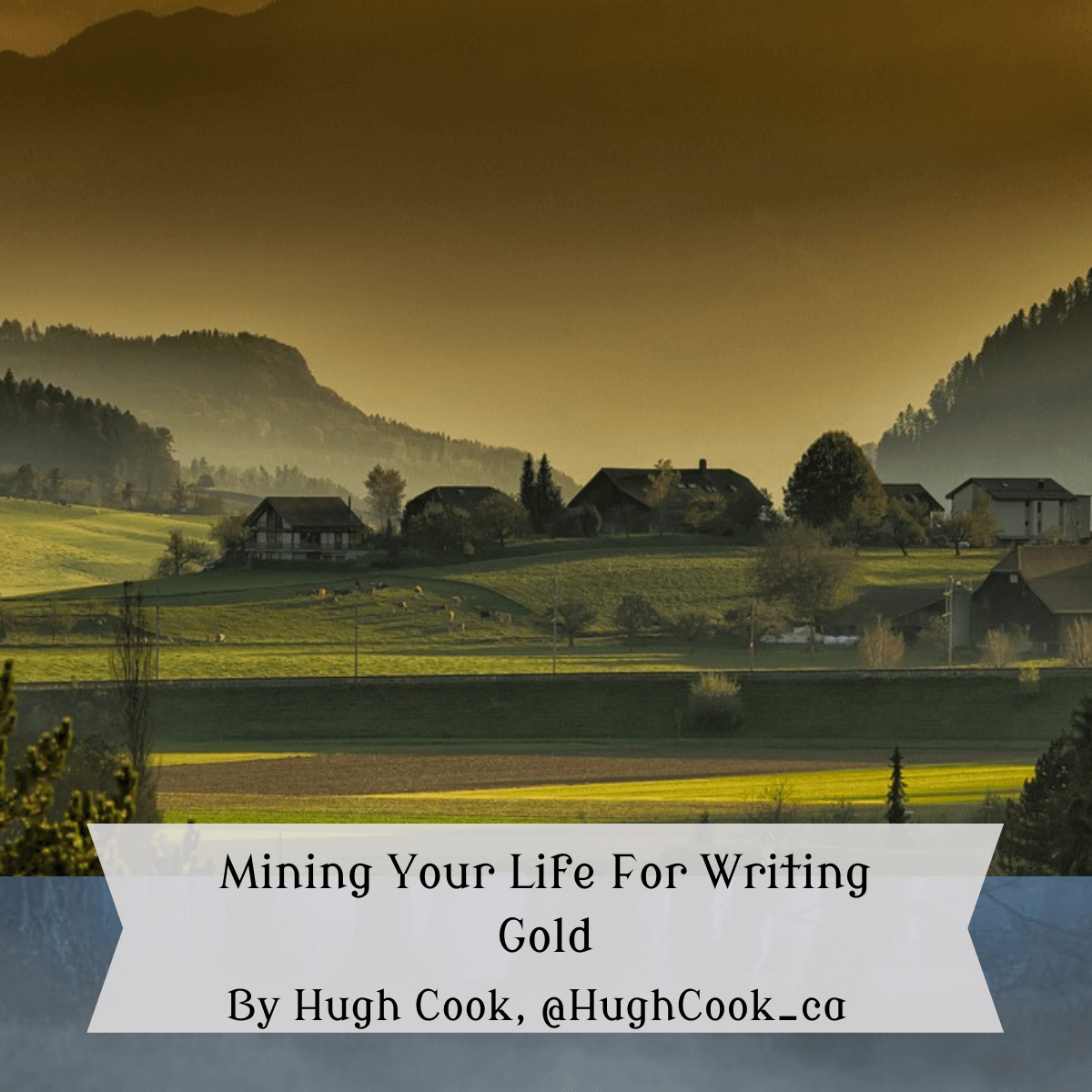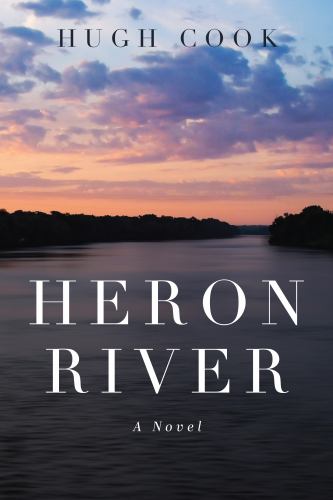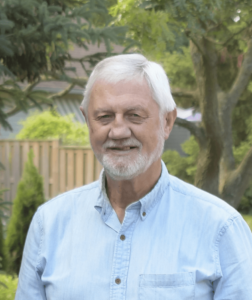by Hugh Cook
A writer once observed that someone’s first seven years provide enough to keep that person writing for the rest of their life. An interesting observation, and true for many, I suppose, but it wasn’t true for me. I was born in the Netherlands, and I remember surprisingly little about my first seven years there. My parents decided to immigrate to Canada when I was seven, and that’s when my memories really begin. Shortly after we arrived in Canada and settled in Burnaby, B.C., my parents bought an older house on Morley Street, a short dead-end gravel road with about a dozen houses, a small community contained between a highway at one end and woods at the other.
If the street was a microcosm of Canadian society at large I knew we had moved to an interesting country. Across the street was Gus Dietrich, whom I admired because he drove huge bulldozers parked on trailers in his driveway. Diagonally across from us were the Barkers, whose house hid behind tall, dense evergreens. The family were Jehovah’s Witnesses, and I can’t remember ever playing with their two kids. More interesting to me was Rev. Mackay two houses down the street, a retired United Church minister who also, we discovered, was a nudist. Apparently he went without clothes inside his house, but working in his yard outdoors he bowed to public decency by wearing a skimpy blue loincloth similar to the ones Indians wore in Hollywood movies, the skin of his leathery torso tanned and wrinkled.
I was puzzled by Rev. Mackay, for the only ministers I had experienced in Holland were dominees who wore black togas in church and preached long sermons and taught me catechism—now here was a minister who went around naked! I couldn’t fathom that: Rev. Mackay, dressed in a blue loincloth picking raspberries or hoeing a flower bed. Reclusive Jehovah’s Witnesses, a nudist United Church minister—I knew we Dutch immigrants in argyle socks and strange haircuts must have been an odd lot in the eyes of Canadians, but we had nothing on some of the others.
The person our family was closest to was Miss Morley next door, a single elderly woman whose grandfather the street was named after. Miss Morley was a hefty woman; the grey hair in her bun was as tight as a knot in a wet rope; thick grey hairs sprouted from her chin. She wore blue denim overalls covered with an apron made from chicken feed sacks and lived in an old house identical to ours, and we would see Miss Morley every day, slowly making her way down her back steps to feed the twenty Red Hampshires she kept for eggs. If she was sick I would have to feed the chickens for her, and I would step into her dark, spider-webbed cellar with dirt floor for the chicken feed and water.
The most interesting thing about Miss Morley, however, was that she had a parrot, a red and blue macaw named Polly which she kept in a cage in her kitchen, and on warm summer days when her kitchen windows were open, we could hear Polly’s screeches split the air. I’d never seen anything as exotic up close as Miss Morley’s parrot. The top of its head was a brilliant red sheen, which gradually turned bright blue on its back and the top of its wings, then an electric blue on its stomach. Its long tail feathers were a shimmering blue and red. I didn’t often enter Miss Morley’s house, whose brown wallpaper and wood furniture and linoleum kitchen floor seemed as ancient as she was, but whenever I did, Miss Morley, knowing why I had come, would lead me to the kitchen to meet Polly. She’d taught the bird to say—what else?—“Polly want a cracker.” The round stub of Polly’s leathery tongue, much like the eraser on the end of a pencil, bobbed up and down inside its beak, then the bird would eye me from inside its cage with piercing eyes—perhaps wondering, since she’d performed, why I didn’t indeed give her a cracker. The bird struck me as being infinitely more interesting than the blue budgie named Pickles my mother kept in a birdcage in our kitchen.
These were among the habitants of Morley Street, whose lives were as odd and eccentric to me as we Dutch immigrants must have seemed to them. From these neighbors, though, I learned an important lesson for writers, which is this: the mystery and complexity and staggering variety found in human lives exists not far away from us, but on our very own street—next door—under our noses—lives as luminous as our own if we will but open our eyes.
So here’s an important question for aspiring writers: WHAT IS YOUR “MORLEY STREET”? What neighborhood, what piece of geography, what occupation do you know better than anyone else? For William Faulkner it was his fictional Yoknapatawpha County in Mississippi, which he called his “little postage stamp of native soil.” For Canadian Nobel Prize-winning author Alice Munro, it was Huron County in southwestern Ontario. For Chaim Potok it was the Chasidic community of Brooklyn. And for James Baldwin it was the gay Black experience in white America. Perhaps for you it’s life on a Michigan farm. For others it may be a small town in Iowa or Illinois. Perhaps for someone it’s what working in a factory is like. Or an inner-city neighborhood that’s been transformed from predominantly white folks to Blacks or Hispanics.
Whatever your “Morley Street” is, seek it out, and mine its riches. Here is a good writer’s motto for you: “Fools seek happiness in the distance, but good writers recognize it under their feet.”
Hugh Cook holds an MFA in fiction writing from the Writers’ Workshop at the University of Iowa. He has published two books of short stories and two novels. Readers can obtain his recent novel Heron River at Amazon and at Barnes and Noble.
Writer and Editor @HughCook_ca on Mining Your Life for Writing Gold: Share on X
Header Image by Jörg Peter from Pixabay



We moved around too much for me to ever experience a neighborhood like that. And sadly, despite spending the first five years of my life in Japan, I remember very little of it.
Thanks, Alex. Sorry you had to move around a lot. As I mention, though, your "Morley Street" need not be a neighborhood. The "place" can be an occupation, a town, a house where you lived, anything or anywhere that you know intimately or that evokes strong feelings or memories.
Hugh
Great post, Hugh! I have a neighborhood like that in my past and it's informed a good deal of my writing.
Thanks, Elizabeth. I'm sure many writers attest to the same.
We've all got interesting experiences and places we've been. I like your idea of using our experiences and those places to fuel writing. Thanks for sharing your own.
Thanks, Margot.
My street growing up and where I live now provide plenty of interesting characters.
And my earliest memory is at the age of two. I had a hamster.
Have you written about either your interesting neighbors or the hamster?
I grew up on a street that was racially an ethnically mixed in a township at the very edge of a small town. One street over, things were far less diverse. It was an education living there that stood me in good stead when I entered the military after high school and saw fellow soldiers struggling with being racially mixed as well as learning to deal with a wide diversity of ethnicities and religious practices. My military background was 'my street' even more so than the street I grew up on. It colors almost all of my writing.
Great example, Anne. I have to admit I hadn’t thought of the military as a possible “Morley Street.” And I even just finished editing a memoir written by a retired military man. It underscores that one’s writing subject can be found anywhere.